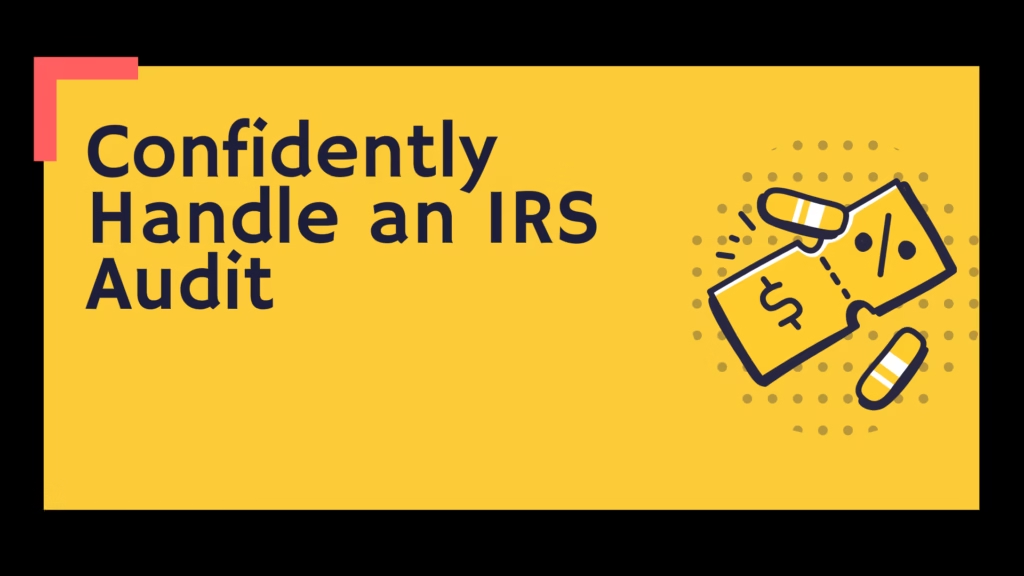
Receiving an IRS audit notice can be stressful, but it’s important to stay calm and take the necessary steps to address the situation. An audit does not necessarily mean you’ve done something wrong—it simply means the IRS wants to verify certain aspects of your tax return. By understanding the audit process and preparing properly, you can navigate it smoothly and avoid potential penalties. In this guide, we’ll walk you through what to do if you receive an IRS audit notice and how to handle it effectively.
1. Understand Why You Were Selected for an Audit
The IRS selects taxpayers for audits for various reasons, including:
- Random Selection – Some audits are purely random, based on statistical formulas.
- Red Flags – Unusual deductions, excessive business expenses, or unreported income can trigger an audit.
- Related Audits – If your business partner or employer is being audited, you might be selected as well.
Once you receive the audit notice, read it carefully to understand the reason for the audit and which tax years are being reviewed.
2. Verify the Authenticity of the Audit Notice
Scammers often send fake IRS audit notices to trick taxpayers. To verify authenticity:
- The IRS only contacts taxpayers via official mail—never through phone calls, emails, or text messages.
- The letter will have an official IRS letterhead and a contact number that you can cross-check on the official IRS website.
- If you are unsure, call the IRS directly at 1-800-829-1040 to confirm the notice’s legitimacy.
3. Review Your Tax Return and Gather Documents
Once you confirm the notice is real, follow these steps:
- Compare your tax return with the notice to understand what the IRS is questioning.
- Collect supporting documents, such as receipts, bank statements, W-2s, 1099s, and expense records.
- Organize paperwork by category to make responding easier.
4. Understand the Type of Audit You’re Facing
There are different types of IRS audits:
- Correspondence Audit – The IRS requests additional documentation via mail.
- Office Audit – You must visit an IRS office for an in-person interview.
- Field Audit – An IRS agent visits your home or business for an examination.
- Taxpayer Compliance Measurement Program (TCMP) Audit – A detailed audit that reviews every part of your tax return.
“Discover 7 Essential Tips for Simplified Tax Filing for U.S. Expats with this comprehensive guide from The Savvy Dollar.”
5. Respond Promptly to the Audit Notice
Ignoring the notice can lead to penalties and additional scrutiny. Follow these steps:
- Meet the deadline specified in the notice to avoid penalties.
- Send a well-organized response with all required documents.
- Be honest and transparent in your responses.
6. Know Your Rights as a Taxpayer
As a taxpayer, you have specific rights, including:
- The right to professional representation – You can hire a CPA, tax attorney, or enrolled agent.
- The right to appeal – If you disagree with the IRS findings, you can challenge the decision.
- The right to a fair and respectful audit process – The IRS must treat you with fairness and professionalism.
7. Seek Professional Help If Needed
If you’re unsure how to handle the audit, consider hiring a professional:
- Certified Public Accountant (CPA) – Can review your financial records and represent you.
- Tax Attorney – Helps if there’s a legal issue or potential fraud allegations.
- Enrolled Agent – Specializes in IRS matters and can represent taxpayers.
8. Negotiate If You Owe Additional Taxes
If the audit results in additional taxes owed, you have options:
- Request a payment plan – The IRS offers installment agreements for taxpayers who can’t pay in full.
- Offer in Compromise (OIC) – If you’re struggling financially, you may negotiate to settle for less than what you owe.
- Request penalty abatement – If you have a reasonable explanation for errors, the IRS may reduce penalties.

9. Appeal the Audit Decision If Necessary
If you disagree with the audit findings, you can:
- Request a reconsideration by providing new evidence.
- File an appeal through the IRS Office of Appeals.
- Take the case to Tax Court if you can’t resolve the issue with the IRS.
10. Prevent Future IRS Audits
To reduce the risk of future audits:
- Keep detailed records – Maintain tax documents for at least three to seven years.
- Report all income – Ensure all income sources are accurately reported.
- Avoid excessive deductions – Ensure deductions are legitimate and well-documented.
- Double-check your return – Simple math errors can trigger an audit.
Conclusion
Receiving an IRS audit notice can be intimidating, but with the right approach, you can handle it effectively. Stay organized, respond promptly, and seek professional help if needed. By following these steps, you can navigate the audit process smoothly and minimize any potential penalties. Remember, audits don’t always mean you owe money—sometimes, they just require clarification. Stay proactive, and you’ll be well-prepared!


